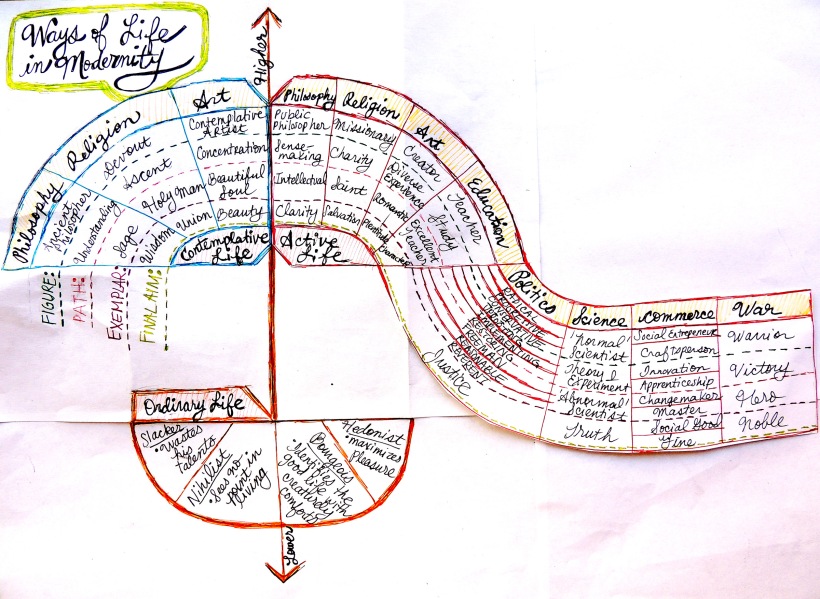I have come to believe that the two virtues required for anyone to philosophize with me are truthfulness and courage. Often, I have spoken of bravery, so this virtue can be put off to the side in this post in order to consider truthfulness on its own.
Truthfulness involves putting a desire to know something about oneself–whatever that something should turn out to be–above the desire to be pleased with oneself or be flattered by others. For instance, I would want to know that I’ve been envious on a certain occasion and to examine why this was so rather than simply continue to believe that I’m always full of admiration and praise. Or I would want to get right that I have tended to be timid or am prone to being irritable on such and such occasions for getting this right takes precedence over indulging myself.
Indeed, truthfulness, teaching me to be accurate with myself regardless of what I learn about myself, lending support to my desire to get a better view of myself however ugly that view may initially appear, is opposed to self-deception. People deceive themselves that they do not lie or have never betrayed their friends; that they love humankind when they really loathe it; that they are compassionate when they are abominably cruel; that they are trusting when they are suspicious or generous when they are miserly. Self-deception is so loathsome because it stands in the way of our confronting what vices we have, what misperceptions cloud our view of things, with the unfortunate result that we cannot overcome these vices. Self-deception, itself a vice, won’t let us free ourselves from the vices it insists upon hiding.
Socrates’s first move was to show his interlocutors that they were deceived about what they knew. Truthfulness was required of each to examine this, to admit the painful yet powerful conclusion, and to continue–even or rather especially after this insight–to keep looking–for what? For what else but the truth.

You must be logged in to post a comment.